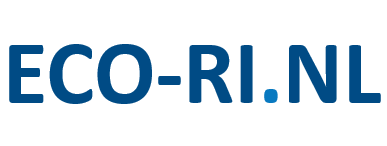Flume and wave mesocosms

Details
- Infrastructure type
- Ecotron indoor
- Institute
This series of facilities hosts different types of flume systems which serve to control water movement by a combination of flow and waves. The flume systems are used to study how water movement affects spatial development, functioning and resilience of the estuarine and coastal ecological landscape. The facility also hosts a wave mesocosm, to study the interaction between hydrodynamics and benthic organisms.
Research topics
Tidal currents; waves; species performance; community structure; hydrodynamic forces; sediment transport; pore-water fluxes; biophysical interactions; erosion.
References
- Cozzoli, F., Gomes da Conceição, T., Van Dalen, J., Fang, X., Gjoni, V., Herman, P. M. J., Hu, Z., Soissons, L. M., Walles, B., Ysebaert, T., & Bouma, T. J. (2020). Biological and physical drivers of bio-mediated sediment resuspension: A flume study on Cerastoderma edule. Estuarine, Coastal and Shelf Science, 241, 106824. https://doi.org/10.1016/j.ecss.2020.106824
- de Smit, J. C., Bin Mohd Noor, M. S., Infantes, E., & Bouma, T. J. (2022). Wind exposure and sediment type determine the resilience and response of seagrass meadows to climate change. Limnology and Oceanography, 67(S1), S121-S132. https://doi.org/10.1002/lno.11865
- Infantes, E., de Smit, J. C., Tamarit, E., & Bouma, T. J. (2021). Making realistic wave climates in low-cost wave mesocosms: A new tool for experimental ecology and biogeomorphology. Limnology and Oceanography Methods, 19(5), 317-330. https://doi.org/10.1002/lom3.10425
- Schotanus, J., Capelle, J. J., Leuchter, L., van de Koppel, J., & Bouma, T. J. (2019). Mussel seed is highly plastic to settling conditions: the influence of waves versus tidal emergence. Marine Ecology Progress Series, 624, 77-87. https://doi.org/10.3354/meps13039
- Wiesebron, L., Teeuw, L., van Dalen, J., van IJzerloo, L., Troost, K., Walles, B., Ysebaert, T., & Bouma, T. J. (2022). Contrasting strategies to cope with storm-induced erosion events: a flume study comparing a native vs. introduced bivalve. Limnology and Oceanography, 67(11), 2572-2585. https://doi.org/10.1002/lno.12223
Running period
1997 - undetermined
Equipment/facilities
Short response flumes
- 1 race-track flume
- 17.5 m. * 40 cm * 60 cm (l*d*h)
- Flow, small waves, wind
- 10 annular flumes
- 157 m2
- Flow à erosion thresholds
- 1 stormy flume
- Highly turbulent flow
- Investigate animal response to erosion rates
- 12 fast-flow flumes
- 12 parallel systems
- Highy turbulent flow
- 24/7 fast flow > 2m/s
- For erodibility tests
Long-term exposure flumes
- 4 wave mesocosms
- Irregular waves (fast push, slow pull)
- 12 mini-flumes
- 3 flow velocities x 4 replicates
- 4 plant shakers
- Regular waves and tides
Field flumes
- OsCar: oscillatory flow channel
- Emulation of wave boundary layer conditions
- Measure sediment’s critical bed shear stress
- TiDyFLOW: Tidal Dynamics Flow channel
- Unidirectional flow
- To observe sediment movement threshold
- TiDyWAVE: Tidal Dynamics Wave flume
- Unbreaking wave, mimics oscillatory flow
- To observe sediment movement
- MoBi-Wave: Mobile Biological Wave flume
- Generates waves
- To be used in the field
New facilities are added over time.
Data management
This facility adheres to NIOZ’s data policy: https://www.nioz.nl/en/research/dataportal/data-policy
Available datasets
Datasets are published with papers, accessible via data repositories indicated in the papers.
Condition for access
Researchers interested in using the flume and wave mesocosms can contact Tjeerd Bouma by email for access.
Details
- Infrastructure type
- Ecotron indoor
- Institute
Experts
Location
Korringaweg 7
4401 NT Yerseke
Netherlands

